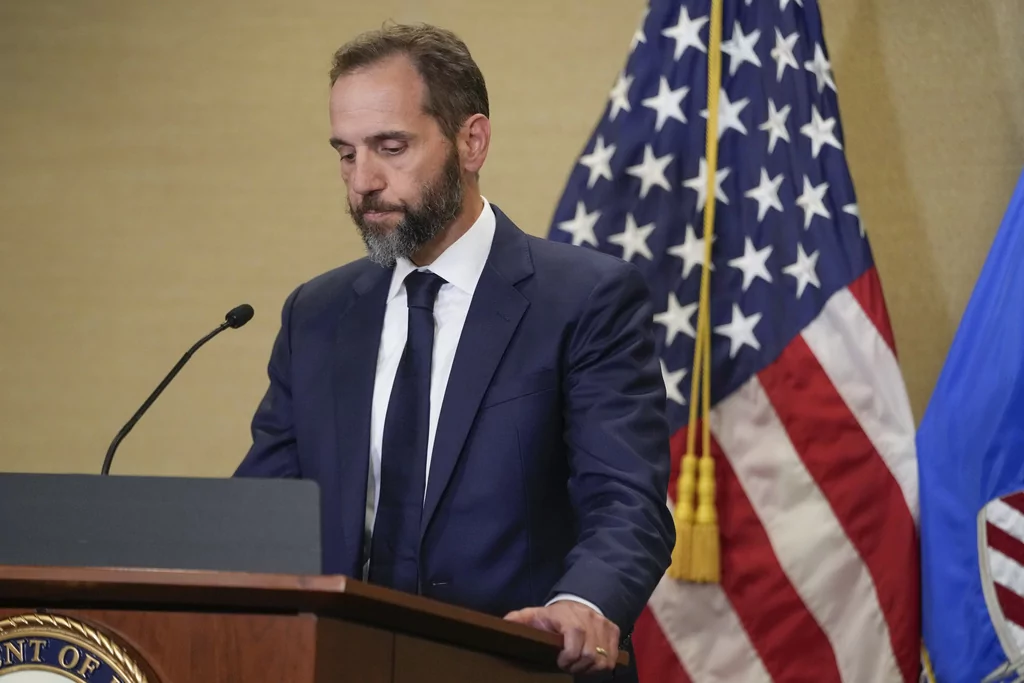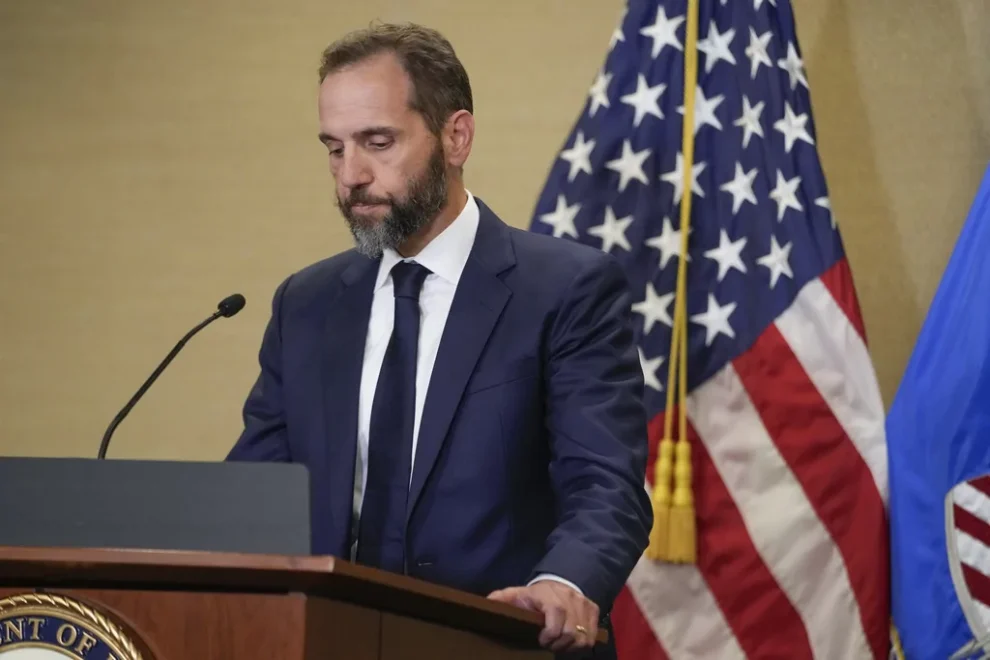Jack Smith took his first stab this week at defending his legitimacy before an appeals court after a judge found there were “very few, if any” special counsels like him and abruptly blew up his classified documents case against former President Donald Trump.
Cannon, a Trump appointee, took Smith’s serious Espionage Act allegations against the former president and turned them into a case study on special counsel power. The move angered left-leaning legal observers, who criticized her for defying long-standing precedent.
Two similarly high-profile defendants who are subjects of a separate special counsel prosecution, Hunter Biden and Alexander Smirnov, attempted to take cues from Cannon and get their charges dropped, but they were unsuccessful.
The arguments between Smith and Trump that led to Cannon’s controversial order involved tangling over language found in both the Constitution and numerous federal statutes.
Hans von Spakovsky, a senior legal fellow at the conservative Heritage Foundation who worked at the DOJ for four years, distilled the sparring down to one argument.
“David Weiss is a legitimate special counsel because he’s a current U.S. attorney, and that’s the difference,” von Spakovsky told the Washington Examiner.
Smith versus Weiss
Attorney General Merrick Garland appointed David Weiss as special counsel in August 2023, and Weiss went on to bring two criminal indictments against Biden and one against Smirnov.
When Garland granted Weiss special counsel authority, Weiss was the sitting U.S. attorney of Delaware, a position that required the Senate to vote to confirm him.
Weiss brought charges against Biden in California, and the first son twice attempted to argue there that Weiss’s appointment was unlawful. The judge ripped apart Biden’s argument as unconvincing. When the first son used Cannon’s decision to raise his argument again, the judge rejected Biden’s request, saying it contained no new legal theories.
Special counsels traditionally operate independently or mostly independently of the attorney general, have broad jurisdiction to prosecute, and a deep well of funding for their work. The attorney general or president designates them to handle politically scandalous cases, which have, in the past, included the Bill Clinton and Monica Lewinsky affair, the Waco, Texas, siege, and claims of Russian interference in the 2016 election.
Since a 1999 regulation instituted by former Attorney General Janet Reno, which attorneys and judges have widely cited as significant, seven special counsels have been appointed.
Four of them, Weiss, Robert Hur, John Durham, and Patrick Fitzgerald, were U.S. attorneys when they were selected. The other three, Smith, John Danforth, and Robert Mueller, were private citizens.
Appointing private citizens
Trump’s defense team successfully argued to Cannon that Smith’s role violated the appointments clause of the Constitution and that no existing law adequately made up for that deficiency.
The appointments clause requires federal offices not designated in the Constitution, such as the Office of Special Counsel, to be established “by law,” meaning by Congress. Senate-confirmed U.S. attorneys would meet that criteria, Trump’s attorneys argued.

Cannon agreed with Trump, saying in her 93-page order that “the appointment of private citizens like Mr. Smith—as opposed to already-retained federal employees—appears much closer to the exception than the rule.”
Prosecutors cited several statutes to argue on behalf of Smith in their appeal, which is sitting before the Atlanta-based Eleventh Circuit Court of Appeals, that some special counsels were “from within the Department and some [were] brought into the Department. Courts uniformly rejected challenges to those appointments.”
Prosecutors also defended Smith’s prior standing as a private citizen. Smith once prosecuted war crimes in Kosovo and served as an acting U.S. attorney at the DOJ. But he was never in a Senate-confirmed position.
“To the extent the district court used the term ‘private citizen’ to refer to someone who was not already a member of the Department of Justice before receiving his commission, that definition applies equally to every member of the Department and has no relevance to the Appointments Clause or to the statutes authorizing the appointment of Special Counsel Smith,” prosecutors argued.
Steven Calabresi and Gary Lawson are two lawyers who filed an amicus brief with former Attorney General Edwin Meese on the topic of Smith’s appointment in which they condemned it as unlawful. Conservative Justice Clarence Thomas later raised concerns in a concurring opinion that Smith’s appointment was in violation of the separation of powers.
And while that activity all fell on the right side of the political spectrum, Calabresi and Lawson were consistent when they thoroughly deconstructed Mueller’s appointment in 2019 in a 70-page Notre Dame Law Review entry.
“There was neither the legal authority nor any need to pluck Robert Mueller out of retirement and private life, and make him unconstitutionally one of the most powerful people in Washington,” the pair wrote.
How to appoint future special counsels
The Eleventh Circuit has reversed a Trump-related decision by Cannon before, but some, including von Spakovsky, think the appellate court could rule in Trump’s favor.
Von Spakovsky said the Supreme Court could, before long, be presented with an opportunity to rein in special counsel appointments.
“If this decision holds, and I expect that it’s going to go all the way to the US Supreme Court, in the future, the only person that the attorney general could hire as a special counsel would be someone who’s already working for the Justice Department and is a U.S. Attorney,” he said.
CLICK HERE TO READ MORE FROM THE WASHINGTON EXAMINER
Calabresi and Lawson expressed similar sentiments, saying there were more than 90 Senate-confirmed U.S. attorneys and that that pool should be sufficient for an attorney general.
“Our reading of the relevant statutes and the Appointments Clause would allow a future Attorney General to ask any of the existing U.S. Attorneys to serve as a special counsel in a case of alleged presidential wrongdoing,” they wrote. “That arrangement is perfectly constitutional.”
























